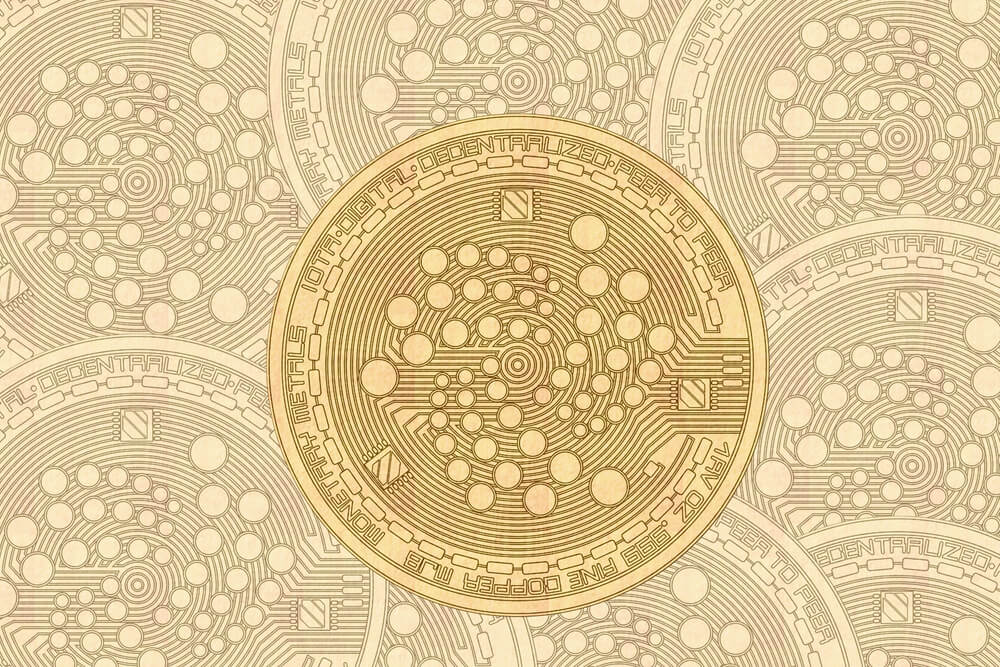
Today the IOTA Foundation launched the beta of the network’s new smart contracts, which will offer the emerging digital marketspace high speed, low impact, and transaction fee free functionality.
In an exciting move, the smart contract beta also enables interoperability between IOTA and erc-20 tokens due to the inclusion of an Ethereum Virtual Machine (EVM). This will facilitate smart contracts written using Ether’s Solidarity language anchored within IOTA’s tangle. Other interoperable languages include Go and Rust.
Other features include the usage of full network sharding to enable developers to wrap smart contracts onto the baselayer of nativised tokens enabling high degrees of interoperability.
The update will also empower developers to set their own IOTA smart contract execution fees. This dynamic pricing creates an incentive to drive fees down, since different chains can compete for the work of executing a smart contract.
Exclusive: IOTA CEO Dominik Schiener talks smart contracts
The IOTA Smart Contracts Beta is an industry first in enabling users to create and execute custom smart contracts on a feeless network for the first time.
The CEO was quick to explain the decision to offer smart contracts with zero fees.
“We believe that a vast amount of our partnerships with multinational entities, governmental agencies, as well as the interest we receive from startups, SMEs, and crypto dApp operators are due to the fact that IOTA is feeless,” he explained.
“Fees themselves, and especially their volatility, put a strain on business models and are the diametric opposite of an economic driver.
“The absence of fees is what makes IOTA so popular in the business world. It enables a multitude of business models that are not feasible on other blockchains. IOTA Smart Contract chains are very versatile and allow for a vast variety of setups, virtual machines and smart contract languages, and permissionless or permissioned environments.
“Costs can be anything down from zero to whatever the chain owner decides should be paid as a fee for the execution of smart contracts. With this setup, we are offering an environment that fits every need and every use case. Offering anything less than that would not live up to our own goals and ethos.”
Late-stage smart contracts = Best-stage smart contracts
Back in September many in the crypto community were alleging that Charles Hoskinson and his Alonzo update to the Cardano network were a little late to the game – with smart contract functionality long established on rival blockchains – a similar criticism has been alleged at IOTA.
But the CEO was quick to dispel myths, explaining that actually being a late-stage smart contract update makes it a whole lot better.
“We analysed all existing solutions the crypto space has to offer and built a solution that circumnavigated the drawbacks that plague our competitors,” he explained.
“Unlike Cardano, for example, IOTA offers parallel execution of smart contracts, while retaining full composability and the ability to feelessly transfer assets across multiple smart contract chains. IOTA Smart Contracts offer near limitless scalability, while Cardano currently seems to have a limited capacity of single digit throughput, planning to find a scaling solution later.
“IOTA is certainly not the first to offer smart contract capability. But we simply didn’t want to offer a solution with known drawbacks. Offering something better requires more work, which requires more time. By being a little later in the game, we were able to take the best concepts from the space and integrate them into a new, superior product.”
What’s next for IOTA?
Looking to the future, the CEO revealed that there is likely to be big initiatives aimed at fuelling dApp development and supporting ecosystem growth in terms of developer talent and project financing.
“Having the opportunity of a level playing field and an eager community is rare,” highlighted Dominik.
“Even though we only launched the beta version today, we are aware that there are already several community projects, DEX and DeFi operators developing solutions on IOTA Smart Contracts.
“With full EVM compatibility, we can rely on pre-existing tooling and a vast ecosystem, making it very easy for anyone to run existing ETH-based dApps on IOTA – or to build new ones. We will add to that by directly supporting projects and developers – including financial support. We will publish more information about that soon.”
Read more: Iota chosen to build-out EU blockchain infrastructure!
Disclaimer: The views and opinions expressed by the author should not be considered as financial advice. We do not give advice on financial products.
This news is republished from another source. You can check the original article here



